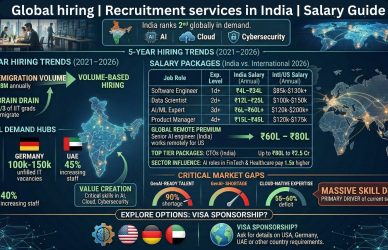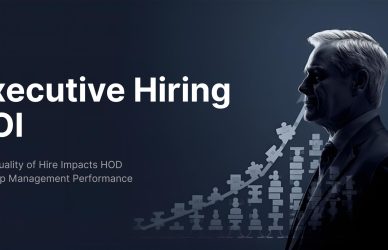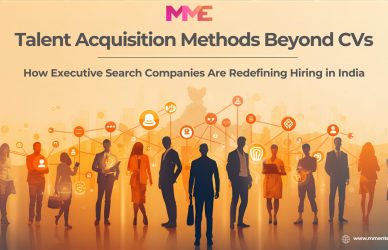Introduction: The Recruitment Renaissance
The Evolving World of Work
The workplace is changing faster than ever. With remote-first and hybrid models becoming the norm, companies are no longer bound by geography when seeking talent. Simultaneously, digital acceleration and shifting employee expectations are rewriting the rules of hiring. In this fast-moving environment, traditional recruitment methods fall short—ushering in a new era where recruitment services must be agile, tech-savvy, and deeply strategic.
Beyond Just Filling Roles
In 2025, recruitment is about more than plugging gaps. Businesses now seek recruitment partners who can provide workforce intelligence, shape employer branding, and foster cultural fit. The role of the recruiter has expanded into that of a workforce consultant—one who understands market dynamics, identifies emerging roles, and aligns talent acquisition with long-term business objectives.
Recruitment as a Strategic Function
Gone are the days when recruitment was merely a support function. Today, it’s at the core of business resilience. In an era marked by talent scarcity, economic fluctuations, and evolving job architectures, companies are depending on expert recruitment agencies to drive competitive advantage. Whether it’s leveraging data to predict future hiring needs or deploying AI tools for better screening, recruitment services are integral to a company’s success.
Setting the Stage for 2025 Trends
As we move deeper into 2025, it becomes clear: recruitment services are in the midst of a renaissance. In the sections ahead, we’ll explore the transformative trends reshaping the industry—from AI-powered talent sourcing to immersive candidate engagement strategies—and how these innovations are redefining success in hiring for both employers and job seekers.

The Rise of AI and Automation in Recruitment
AI as a Recruitment Powerhouse
In 2025, Artificial Intelligence (AI) is no longer an emerging trend in recruitment—it’s a core component of how modern hiring operates. Recruitment agencies and HR departments rely on AI to perform tasks that were once time-consuming, prone to bias, and heavily manual. Resume parsing software now reads and categorizes thousands of applications in seconds, identifying qualified candidates based on keywords, experience, and role fit. This not only speeds up the process but significantly reduces the risk of overlooking top talent.
Smarter Screening Through Predictive Analytics
Predictive analytics powered by AI goes beyond screening resumes. These tools can analyze historical hiring data and performance metrics to forecast which candidates are likely to succeed in a particular role. For instance, by examining patterns in job history, interview responses, and even digital behavior, AI models can suggest the most promising applicants—allowing recruiters to make data-backed decisions with greater confidence.
AI-Powered Candidate Engagement
AI-driven chatbots have become indispensable in managing candidate engagement. These bots now conduct initial interview rounds, respond to candidate queries 24/7, schedule interviews, and send timely updates. This level of responsiveness enhances the candidate experience and keeps prospects warm throughout the hiring journey. More advanced platforms like HireVue and Pymetrics leverage AI to evaluate soft skills, body language, and emotional cues through video interviews—adding a deeper layer of analysis that complements traditional assessments.
Automation for Efficiency and Scale
Recruitment agencies are increasingly automating repetitive tasks such as sending follow-up emails, setting reminders, and updating application statuses. These tools help manage high volumes of applicants without sacrificing personalization or professionalism. With automation in place, recruiters can focus more on strategic tasks like client consultation, talent mapping, and building candidate relationships. The result is a streamlined hiring funnel and reduced time-to-hire, which is crucial in today’s fast-moving job market.
Balancing Technology with the Human Element
Despite the efficiency gains, AI and automation cannot fully replace human judgment. Attributes like emotional intelligence, adaptability, and cultural alignment are still best assessed through human interaction. Successful recruitment services in 2025 strike a balance between data and intuition—using AI for efficiency and insight, while preserving the recruiter’s role as a trusted advisor and talent matchmaker.
As the recruitment landscape evolves, agencies that master the synergy between automation and empathy will lead the way—delivering faster, smarter, and more human-centric hiring experiences.
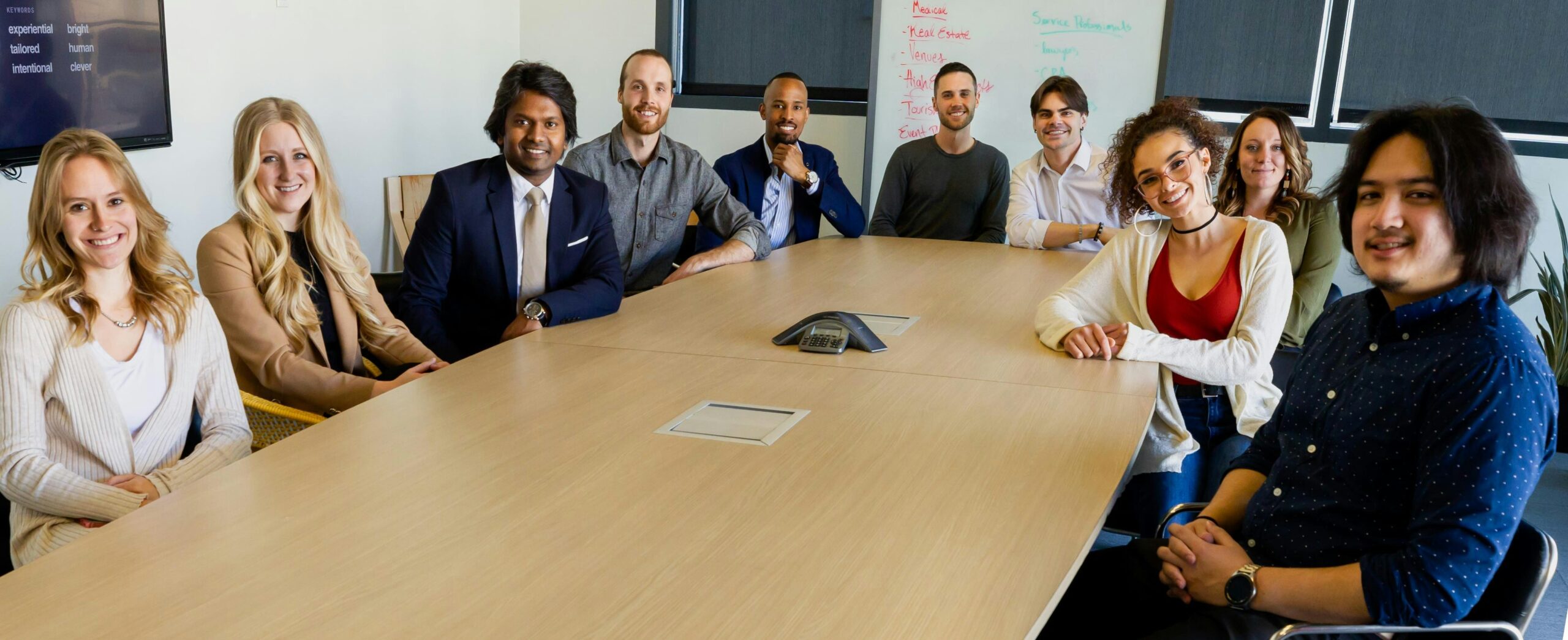
Data-Driven Hiring Decisions
Transforming Recruitment Through Analytics
In 2025, data is the cornerstone of modern recruitment services. Recruitment agencies are no longer relying solely on instinct or experience—instead, they use data analytics to inform hiring strategies, streamline workflows, and deliver measurable results. Data is driving every stage of the recruitment funnel, from talent sourcing to final offer decisions, allowing agencies to operate with unprecedented precision and agility.
Tracking Key Recruitment Metrics
Advanced recruitment platforms now feature intuitive dashboards that track vital hiring metrics. KPIs such as time-to-fill, cost-per-hire, source-of-hire, offer acceptance rate, and quality-of-hire are monitored in real-time. These insights help agencies refine their strategies continuously. For example, if data shows a particular sourcing channel delivers the highest-quality candidates, more resources can be allocated to that platform. Likewise, time-to-fill data can highlight inefficiencies in the hiring process and prompt timely adjustments.
Predictive Hiring for Strategic Workforce Planning
One of the most powerful applications of data in recruitment is predictive analytics. By analyzing historical hiring trends and workforce data, recruitment agencies can anticipate future talent needs before they arise. This forward-thinking approach enables clients to build talent pipelines in advance, reducing reliance on reactive hiring and improving readiness in competitive talent markets. Predictive models also help identify the likelihood of candidate success based on past hiring outcomes and performance metrics.
Behavioral Insights for Precision Targeting
Recruitment agencies are increasingly using data from CRM systems and digital behavior analytics to improve candidate engagement. By examining how and when candidates interact with job posts, emails, or career content, recruiters can determine the optimal timing and message type for outreach. These behavioral insights make communication more relevant and increase the likelihood of a positive response—especially critical in attracting passive candidates.
Data-Driven DEI Initiatives
Diversity, equity, and inclusion (DEI) have become central to recruitment strategies, and data plays a vital role in their implementation. Agencies analyze hiring patterns to uncover unconscious biases, track demographic data across sourcing channels, and assess diversity ratios throughout the hiring process. This data-driven approach helps recruiters design more inclusive talent strategies and demonstrate measurable progress to clients focused on building equitable workplaces.
Building Client Trust Through Transparency
Clients today expect transparency and accountability from their recruitment partners. Agencies that provide real-time reporting, detailed performance metrics, and clear ROI data establish stronger client relationships. Sharing insights on pipeline health, engagement metrics, and placement success builds trust and reinforces the agency’s value as a strategic advisor, not just a service provider.
In today’s competitive recruitment landscape, data isn’t just a tool—it’s a differentiator. Agencies that harness the power of data-driven hiring decisions are leading the industry forward with smarter, faster, and more inclusive talent solutions.

Remote Recruitment and Global Talent Pools
A Borderless Talent Marketplace
The rise of remote work has fundamentally reshaped how and where companies hire. In 2025, recruitment services are no longer confined by geographic boundaries. The global workforce is now more accessible than ever, with agencies routinely sourcing candidates from Asia, Europe, Africa, and the Americas to meet client demands. Whether it’s tech talent in India, engineering expertise in Eastern Europe, or creative professionals in Latin America, businesses can now tap into a truly global talent pool—quickly and cost-effectively.
Virtual Hiring Goes Mainstream
Virtual recruitment platforms have matured significantly, offering highly engaging and interactive experiences for both employers and candidates. Video interviews, AI-led skill assessments, virtual office tours, and digital introductions are now standard parts of the hiring journey. These tools enable employers to evaluate candidates effectively without ever meeting in person. With robust platforms supporting real-time communication, document sharing, and interview analytics, recruiters can provide a seamless experience across borders.
Cross-Border Compliance and Onboarding Support
Hiring internationally comes with complex legal, tax, and regulatory implications. That’s where recruitment agencies have stepped up. Many now offer—or partner with—Employer of Record (EOR) services to manage local compliance, employment contracts, payroll, and benefits administration. This integrated approach ensures that businesses remain compliant with international labor laws and that new hires are onboarded smoothly, regardless of location.
Targeted Sourcing Through Technology
Recruitment agencies are leveraging advanced technologies like geotargeted advertising, multilingual job platforms, and localized SEO strategies to attract qualified talent from specific regions. For example, companies seeking IT talent in Bangalore or software developers in Poland can rely on regionally-optimized campaigns to reach the right audiences. These precision-targeted efforts ensure more relevant applications, faster turnarounds, and better-quality hires.
Navigating Cultural and Communication Challenges
With global hiring comes the challenge of managing time zone differences, language barriers, and cultural nuances. In response, recruitment agencies have refined their processes to assess language fluency, adaptability, and cultural fit early in the hiring cycle. Specialized assessments, multilingual recruiters, and cultural onboarding resources help ensure smooth communication and successful team integration.
Strategic Advantage Through Global Reach
Access to a global talent pool is not just about cost-efficiency—it’s a strategic advantage. Companies can diversify their teams, tap into fresh perspectives, and operate around the clock with distributed workforces. Recruitment agencies that are adept at managing international placements are becoming vital partners in scaling global operations and driving innovation through diverse, remote teams.
The era of remote recruitment is here to stay. By combining technology, compliance expertise, and regional specialization, recruitment services are empowering organizations to build world-class teams—no matter where the talent resides.

Hyper-Personalization of the Candidate Experience
The End of Generic Engagement
By 2025, generic candidate experiences have become outdated. Today’s job seekers expect the same level of personalization they receive from streaming services or online shopping platforms. Recruitment agencies have responded by using advanced data analytics and AI to create hyper-personalized journeys that reflect each candidate’s unique aspirations, preferences, and professional goals. This shift has transformed the recruitment process from transactional to experiential.
AI-Powered Personalization Engines
Modern recruitment platforms now harness AI to tailor job recommendations based on a candidate’s resume, career path, behavior patterns, and even social media activity. These systems identify not just what a candidate is qualified for, but also what aligns with their long-term goals and values. Whether a candidate is actively job hunting or passively exploring opportunities, AI ensures they receive relevant, timely openings that match their profile with impressive accuracy.
Immersive Digital Interactions
Interactive career portals now offer a host of tools that empower candidates to explore roles before applying. Virtual job simulations, real-time skill assessments, and gamified tests provide a hands-on preview of the position. Candidates receive instant feedback and development tips, enabling them to understand their fit and grow from the process—even if they’re not selected. These experiences make job seeking feel less like a black box and more like a two-way street.
Multi-Channel Communication and Custom Messaging
Gone are the days of impersonal email blasts. Today’s recruiters reach out through SMS, WhatsApp, and personalized video messages—often choosing the channel that the candidate prefers. Candidates may receive a tailored introduction video from a hiring manager or a VR walkthrough of the office, helping them visualize the culture and environment they’re considering. This approach deepens emotional connection and increases engagement throughout the recruitment journey.
Tailored Onboarding Journeys
Personalization doesn’t stop at hiring. Leading recruitment agencies now support hyper-personalized onboarding in collaboration with employers. Pre-boarding content might include welcome videos, customized learning modules, or early access to community chats. New hires may also be paired with mentors who match their interests and background, furthering their sense of belonging and ramping up their engagement from day one.
Candidate-Centric Recruitment Culture
At its core, hyper-personalization is about treating candidates like valued customers. Agencies that prioritize clear communication, respect timelines, and provide feedback—whether the outcome is positive or not—stand out. This candidate-first approach not only improves experience but also enhances employer branding and increases the likelihood of offer acceptance and long-term retention.
In a talent-scarce world, candidates hold the power. Recruitment services that understand this shift and personalize every interaction—from outreach to onboarding—are the ones redefining recruitment success in 2025.

Employer Branding as a Core Recruitment Strategy
Recruitment Meets Marketing
In 2025, recruitment has evolved beyond filling vacancies—it’s now a branding exercise. Candidates research companies as thoroughly as they research the products they buy, seeking insights into culture, values, leadership, and work-life balance. As a result, recruitment services have embraced employer branding as a strategic pillar, helping organizations attract top talent by telling compelling brand stories.
Crafting and Communicating the Employer Narrative
Modern recruitment agencies provide end-to-end employer branding services. They help companies define and articulate their employer value proposition (EVP) through storytelling, visual content, and employee testimonials. Authentic videos featuring real team members, behind-the-scenes workplace snapshots, and day-in-the-life blogs allow job seekers to envision themselves within the organization. Additionally, agencies optimize career pages for user experience, ensuring they reflect the brand identity while being mobile- and SEO-friendly.
Managing Online Reputation and Review Platforms
Platforms like Glassdoor and Indeed are critical in shaping public perception. Recruitment firms now actively manage employer review profiles, addressing feedback, promoting positive reviews, and mitigating reputational risks. A strong presence on these platforms builds trust and credibility, especially with younger job seekers who heavily rely on peer reviews before applying.
Social Media: The New Talent Magnet
Social media has become a powerful tool for employer branding. Agencies create targeted campaigns on platforms like LinkedIn, Instagram, and even TikTok to spotlight company culture, announce job openings, and celebrate employee achievements. Branded hashtags, employee-generated content, and interactive posts help foster engagement and increase visibility among passive candidates who may not be actively job searching.
Values-Driven Branding
Today’s workforce places high value on purpose and principles. Candidates are drawn to employers that are vocal about sustainability, diversity, equity, inclusion, mental wellness, and flexibility. Recruitment services help companies identify their core values, refine messaging, and communicate these attributes consistently across all touchpoints to connect with mission-aligned talent.
Becoming an Employer of Choice
Agencies that excel in employer branding help their clients rise above the noise and stand out in a saturated job market. A well-executed employer brand leads to higher application quality, faster hiring cycles, and improved retention rates. In 2025, it’s not just about who pays the most—it’s about who inspires the most.

Skills-Based Hiring and Upskilling Partnerships
A Shift from Degrees to Abilities
In 2025, the recruitment landscape is rapidly moving away from credential-based hiring and embracing a skills-first approach. As job roles evolve faster than traditional education systems can adapt, employers are placing greater value on demonstrated capabilities rather than formal degrees. Recruitment agencies now prioritize candidates who can show what they can do—through real-world experience, hands-on assessments, and practical portfolios.
Integrated Skill Assessments in Recruitment
To support this shift, recruitment platforms have embedded tools that evaluate candidates on technical and soft skills alike. Coding tests, design portfolios, data interpretation exercises, customer interaction simulations, and language proficiency exams are now part of the standard application journey. Candidates who perform well are fast-tracked for interviews, improving both the speed and quality of hiring decisions. This data-driven, merit-based approach ensures fairer evaluations and highlights high-potential talent from diverse educational backgrounds.
Upskilling Through Strategic Partnerships
Recognizing the importance of continuous learning, many recruitment agencies now collaborate with leading online learning platforms such as Coursera, Udemy, and LinkedIn Learning. These partnerships allow agencies to offer customized upskilling opportunities to candidates—either pre-placement to enhance job-readiness or post-placement to support career development. By providing access to relevant courses and certifications, recruiters add tangible value to both job seekers and hiring companies.
Workforce Planning and Future-Proofing
Recruitment services are also playing a more strategic role in helping businesses prepare for future workforce needs. Agencies work closely with clients to identify emerging skill gaps and forecast future role requirements. With these insights, recruiters develop talent pipelines that include upskilling roadmaps, ensuring the availability of qualified talent for both current and upcoming needs.
Inclusive and Industry-Ready Hiring
Skills-based hiring is also helping to level the playing field. It opens doors for non-traditional candidates—those without formal degrees but with relevant capabilities—to compete fairly. This model also helps industries close the widening digital and technical skills gap by focusing on practical expertise rather than pedigree.
In a world where adaptability is key, recruitment services that prioritize skills and learning are shaping a more agile, inclusive, and future-ready workforce.

Diversity, Equity, and Inclusion (DEI) in Focus
From Policy to Priority
In 2025, Diversity, Equity, and Inclusion (DEI) has evolved from being a well-meaning checkbox to a critical business priority. Forward-thinking organizations recognize that inclusive teams foster greater innovation, stronger decision-making, and higher employee satisfaction. Recruitment services now play a central role in helping companies build workforces that reflect diverse backgrounds, identities, and experiences.
Technology-Enabled Bias Reduction
To ensure fairness in hiring, agencies leverage AI-powered tools that minimize unconscious bias. Techniques such as anonymized resumes, blind screenings, and neutral language in job descriptions are widely adopted. Additionally, structured interviews and diverse interview panels have become standard practice, ensuring candidates are evaluated consistently and equitably.
Active Outreach to Underrepresented Talent
Recruiters are no longer waiting for diverse talent to apply—they are proactively sourcing candidates from underrepresented communities. This includes partnering with minority-focused job boards, engaging with local community organizations, and collaborating with schools and institutions that serve marginalized populations. These outreach efforts significantly expand access and visibility for candidates who may otherwise be overlooked.
DEI Metrics and Accountability
Transparency and accountability are essential to effective DEI strategies. Recruitment agencies track and report key metrics such as diversity hiring rates, pay equity, candidate experience feedback, and inclusive retention. This data not only demonstrates impact but also helps organizations refine their hiring practices. Many agencies now offer DEI audits and training to support continuous improvement across the recruitment lifecycle.
Business Benefits of DEI-Driven Hiring
Companies that prioritize DEI benefit from improved innovation, greater market reach, and enhanced employer reputation. Employees in inclusive workplaces report higher engagement and are more likely to stay long-term. As a result, DEI-focused recruitment services are in high demand—helping employers not just meet expectations, but exceed them in building the teams of tomorrow.
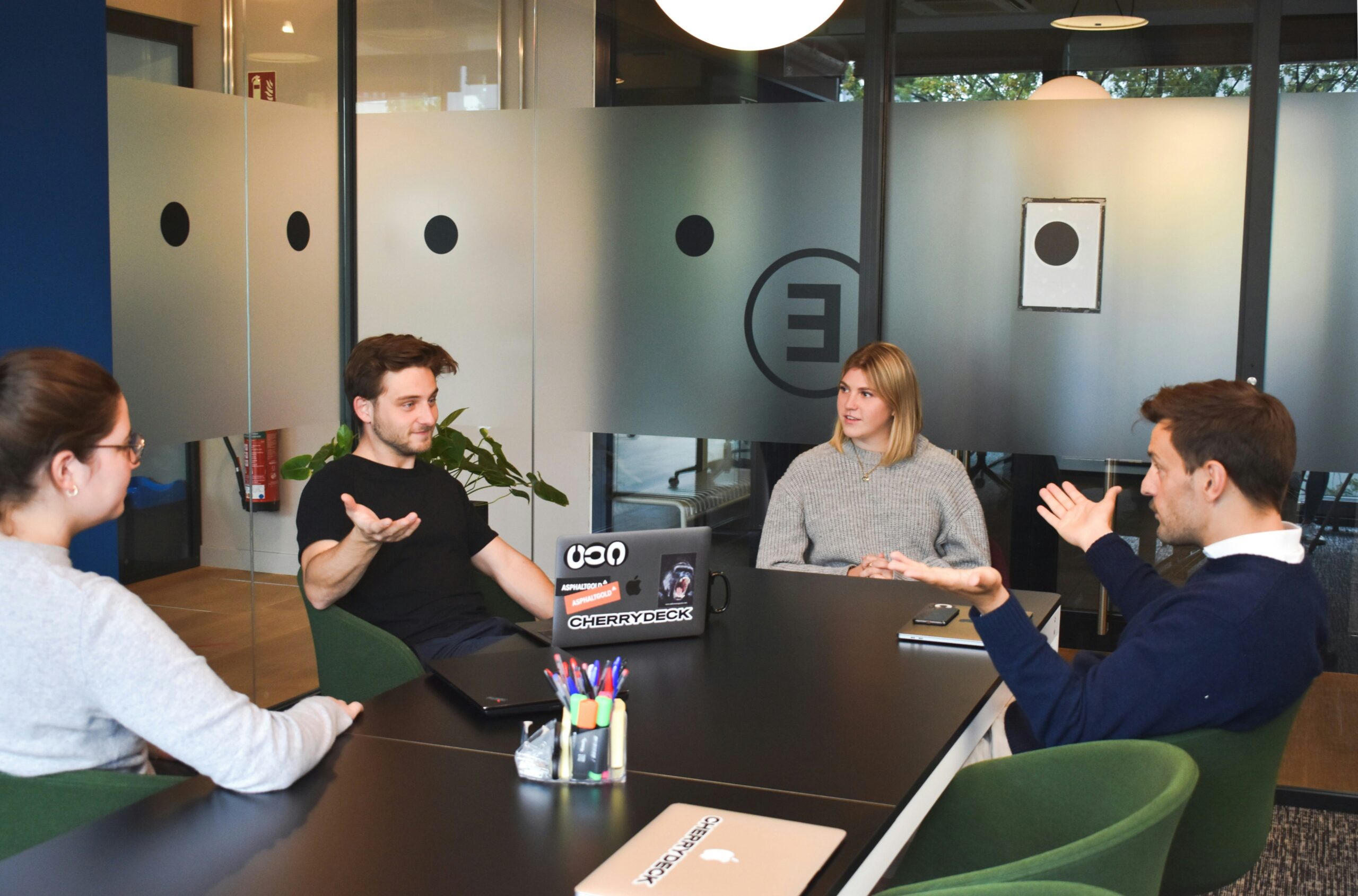
Conclusion: The Strategic Role of Recruitment Services in 2025
From Vendors to Visionary Partners
Recruitment services in 2025 have transformed from simple hiring vendors into critical strategic partners. Today’s agencies act as workforce architects—consulting on talent planning, advising on employer branding, and enabling global expansion. Their role is no longer reactive or task-based but proactive, insight-driven, and embedded in long-term business goals.
Empowering the Future Workforce
By integrating AI, automation, and data analytics, recruitment firms now deliver highly efficient and accurate hiring solutions. They personalize every candidate touchpoint, ensuring that the experience is engaging and aligned with modern job seeker expectations. From virtual assessments to DEI-driven sourcing, every element of the recruitment process is designed to meet the dynamic needs of the global workforce.
Navigating Complexity with Confidence
Modern recruitment services also help organizations manage increasing complexity—whether it’s international compliance, cross-border payroll via EOR partnerships, or skills-based hiring amid rapid industry evolution. Agencies provide the frameworks and technologies that allow companies to scale confidently and compliantly, regardless of geography.
Driving Competitive Advantage Through Talent
In a business landscape where innovation and agility are driven by people, talent has become the ultimate differentiator. Companies that recognize recruitment as a strategic function—and invest in the right recruitment partnerships—gain a crucial edge. These partnerships fuel faster hiring, better retention, and access to global talent pipelines that keep businesses ahead of the curve.
Recruitment services in 2025 are not just about hiring—they are about future-proofing organizations. With their multifaceted role spanning technology, branding, analytics, and compliance, they’ve become indispensable allies in building world-class teams and achieving sustainable growth.


